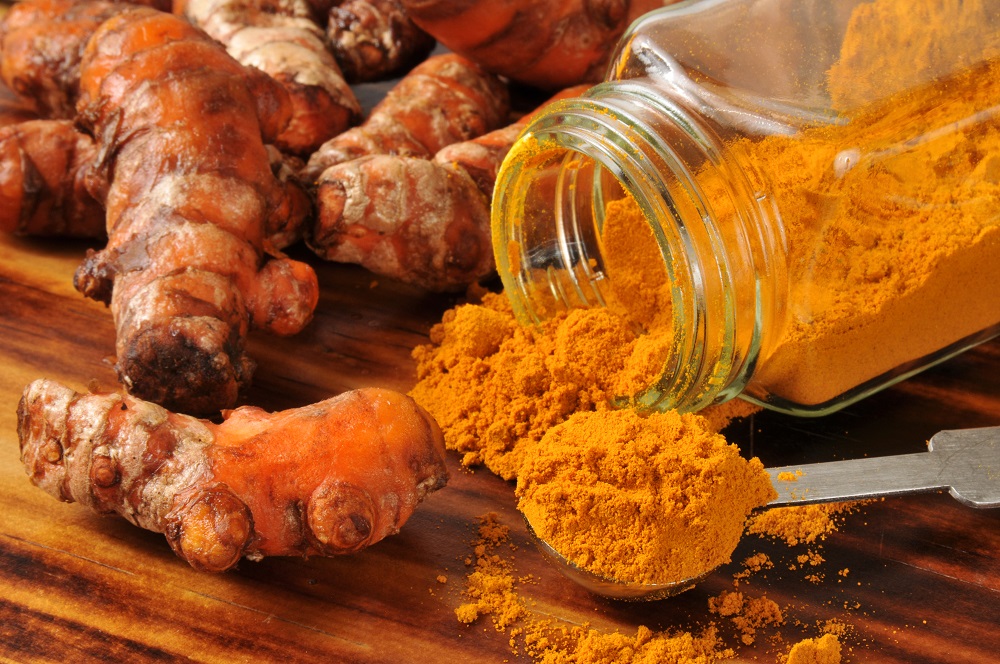
Health Benefits Of Curcumin In Turmeric
Time and again, I have heard people tell me that they drink a glass of warm water or milk with turmeric mixed in it every morning. They do this to get the health benefits of curcumin in turmeric.
Curcumin is the active component of turmeric.
I thought I would talk about the health benefits of turmeric, particularly its primary active component. As always, I have reference numerous scientific studies in this article, as evident from the links.
What Is Turmeric?
Turmeric, or Curcuma longa, is a rhizomatous perennial plant that is closely related to ginger. It has been used for thousands of years for its medicinal properties, though the mechanism through which it works has only been discovered recently. It is called the ‘golden spice’ due to its brilliant yellow-gold color.
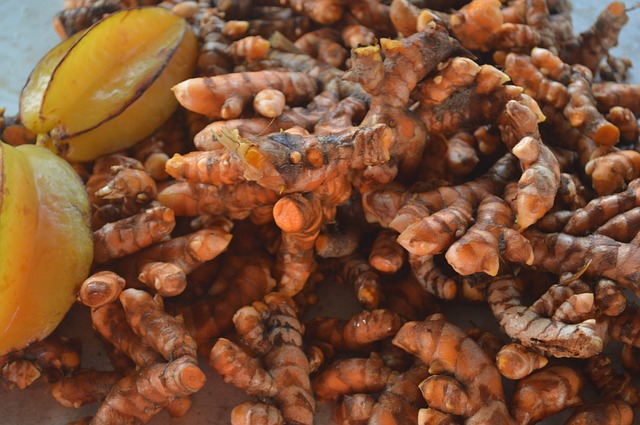
In fact, around 250 BC, Susruta used turmeric in an ointment that was used to treat people who had consumed poisonous foods.
Turmeric grows best between temperatures of 20 – 30 degrees C, and requires a lot of rainfall to grow well. It is produced almost exclusively in India, and we are it’s primary consumers as well.
Curcumin is a polyphenol (1,7-bis(4-hydroxy-3-methoxyphenyl)-1,6-heptadiene-3,5-dione) that has numerous anti-inflammatory, anti-cancer, antimicrobial and antioxidant properties.
There are numerous other benefits of curcumin in turmeric that I will be discussing here. One teaspoon of turmeric contains around 200 mg of curcumin.
To get the most out of curcumin and to reap the maximum health benefit, one should consume around 1000 mg to 1200 mg of curcumin a day (that’s around 5 teaspoons of turmeric a day). Even doses up to 8 grams a day seem to be safe, though you may not need that much to get all the benefits.
How Curcumin Protects Your Health
The primary mechanism of action of curcumin is through antioxidant and anti-inflammatory properties.

Our body is exposed to numerous stressors every day. Pollution, work related stress, unhealthy diets, lack of exercise and lack of sleep can all lead to the formation of free radicals in the body.
Free radicals are harmful to all the vital organs, and affect the way they function. The way they harm is called oxidative stress.
Curcumin increases the level of activity of a compound called SuperOxide Dismutase, or SOD. This works to get rid of oxidative stress by neutralizing the free radicals in the blood.
Not just that; curcumin can also increase the levels of reactive oxygen and nitrogen species. These compounds have a property of ‘gobbling up’ all these free radicals.
In addition to the antioxidant properties, curcumin is a powerful anti-inflammatory agent. Inflammation is a key part of conditions such as Parkinson’s disease, Alzheimer’s disease, heart attacks and depression, including diabetes, high blood pressure, asthma, lung disease and low immunity.
The anti-inflammatory properties are exerted through a reduction in the levels of compounds that are ‘pro-inflammatory’ – meaning they worsen inflammation. The primary pro-inflammatory compound that is countered is Tumor Necrosis Factor, or TNF.
There are of course numerous other compounds whose harmful effects are blocked, but I will not go into too much detail as it will likely confuse matters (or just bore you!)
Health Benefits of Curcumin In Turmeric
Let’s look at its benefits in healthy people first. After that, I will discuss specific conditions where you can reap the health benefits of curcumin in turmeric.
Healthy People
There are not many clinical studies conducted that clearly define the benefits of curcumin in people who are healthy and free from disease. Studies have primarily looked at high levels of curcumin ingestion – something that you would not get should you have turmeric as an addition to your diet.
I personally do not like to prescribe a curcumin supplement to people who are perfectly healthy. I just don’t see the real need. But there is nothing wrong in taking it if you wish to.
In one study that looked at regular administration of 80 mg of curcumin a day for 4 weeks, study subjects had a significant lowering of their triglyceride levels, but not the remainder of the cholesterol values.
Curcumin also increased the levels of a compound called nitric oxide in the body. Nitric oxide has a property of improving blood flow in the body and to the heart muscle.
It also reduced the quantity of a protein called beta-amyloid. This protein is a marker for brain ageing, with higher levels seen in an aged brain (have discussed this later).
But that’s not all folks.
Long term treatment with curcumin can over a period of time improve memory and mood, enhance alertness and make you an ‘all round chilled out’ person!
As you can see, the benefits are many in healthy people. So try to make curcumin a part of your daily diet – or choose a supplement if you wish to.
Arthritis
Osteoarthritis (OA) is a common problem affecting millions globally. The aches and pains in the joints can sometimes be debilitating, negatively impacting quality of life. Unfortunately, there is no cure.
Painkillers in the form of paracetamol or non-steroidal anti-inflammatory drugs are prescribed like smarties for patients to help them deal with the pain.
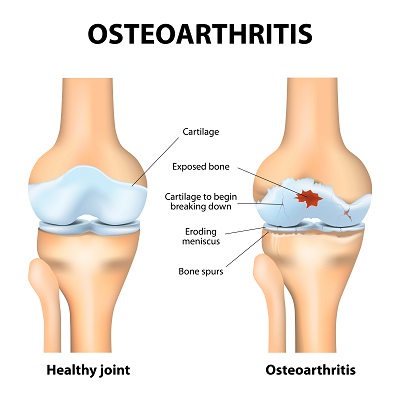
Interestingly, curcumin can be the solution you have been looking for.
Various studies have found that taking around 1 gram or more of curcumin for a prolonged period of time can lower pain and improve physical function in OA. However, the stiffness in the joints is often not improved. The effects are believed to be exerted locally within the joint.
A study comparing curcumin to ibuprofen, a popular painkiller, found that they both worked to the same effect, offering the same symptom relief. The advantage of curcumin is that it is natural and has no side effects, compared to ibuprofen and other such medicines that can cause acidity and other related symptoms.
Do note that the dose of curcumin needed everyday to improve joint pains is 2 grams (that’s around 10 teaspoons of turmeric powder daily – better to take a supplement).
Obesity, Diabetes and Metabolic Syndrome
Curcumin exerts anti-obesity and anti-diabetic effects in a number of different ways. Primarily, the anti-inflammatory effect it exerts on the body helps lower the risk of development of metabolic syndrome and insulin resistance.
Insulin resistance is a condition where the body stops responding to the natural insulin being produced by the pancreas to control glucose entry into the cells. This glucose entry is essential to provide vital organs with the nourishment they need.
Insulin resistance is the core problem in the development of diabetes and obesity. It is closely linked to heart disease and strokes as well.
By improving insulin resistance, curcumin can lower your risk of developing metabolic syndrome and its consequences. It is one of the remarkable health benefits of curcumin.
In patients with diabetes, regular curcumin use can lower HbA1c levels. It can also lower the risk of developing complications from diabetes. In particular, it helps reduce nerve pain in the hands and feet.
Cancer
Curcumin has an anti-mutagenic effect. This means that it prevents the growth of cells that can lead to cancer. It does this through its antioxidant effects.
It has been shown in studies to deactivate the cancer causing compounds in smoke from cigarettes. Similar effects have been shown in prostate cancer. In people with skin cancer (melanoma), curcumin may prevent spread of the cancer cells (metastasis).
Heart Disease
In addition to the cholesterol lowering effects I mentioned earlier, one of the benefits of curcumin is that it specifically targets atherosclerosis, the root cause of heart disease.
Once again, this has to do with its antioxidant effects, along with its effects of lowering the levels of toxic inflammatory compounds in the blood called cytokines. By doing so, it reduces the damage blood vessels face from these toxic compounds, keeping them healthy.
But the effects of curcumin extend beyond that.
In a wonderful review that I had read about the health benefits of curcumin in heart disease, evidence suggests that curcumin can decrease the extent to which the heart is affected should a heart attack occur.
To explain further, a heart attack occurs when an artery of the heart is blocked by a blood clot. Heart muscle damage is almost instant. Sometimes the extent of damage can be so severe that the heart becomes extremely weak. Mouse studies have found that when curcumin is administered after a heart attack, the extent to which the heart is involved is lesser.
This means that the heart will not be that badly affected, and recovery would be quicker and better.
Doxorubicin is a chemotherapy drug that is used in the treatment of breast cancer and certain blood cancers. A side effect of this drug is weakening of the heart muscle. Curcumin has been found to lower the chances of this happening.
Dementia
Personally, I dread that there is a chance that at some point in life I will lose my memory. The birth of my son, the time with my family and friends, and the faces and personalities of the people I have met in my lifetime might become just one big blur.

Just the thought of it is frightening, so I cannot imagine how it might feel for someone who is experiencing it already.
There has been extensive research done in dementia, or memory loss, over the years. Inflammation and oxidative stress have been cited as possible causes. Cardiac risk factors such as high blood pressure, high cholesterol and diabetes are also risk factors for dementia.
I was hoping that there would be some data suggesting curcumin to be a solution to memory loss. Sadly, there isn’t much evidence out there that describes its direct impact. Some studies have suggested that there may be a reduction in a protein called amyloid-beta that has been implicated in Alzheimer’s disease.
Levels of inflammation within the nerve fibers of the brain (neuro-inflammation) may also be reduced.
Given the effect curcumin has on diabetes and other cardiac risk factors, it stands to reason that dementia and Alzheimer’s disease progression and onset would certainly be slowed down.
As it is, there might in fact be benefits in taking a curcumin supplement regularly not to improve memory, but to lower your chances of memory loss as you age.
Dental And Skin Health
Rubbing turmeric on the gums and gargling turmeric in water has been found to cleanse the mouth and reduce dental plaque. It can be a good mouthwash as it has antibacterial properties.
Applied on the skin, it can reduce blemishes, acne and dermatitis (remember Vicco Turmeric cream?!).
Other Health Benefits Of Curcumin
Curcumin seems to be able to fight the malarial parasite, and may have uses in people suffering from malaria. In fact, in a study conducted in mice, curcumin reduced the malarial parasite load by around 80% – 90% in mice affected by malaria.
Turmeric also protects the liver and the kidney through the same antioxidant and anti-inflammatory effects I have described earlier.
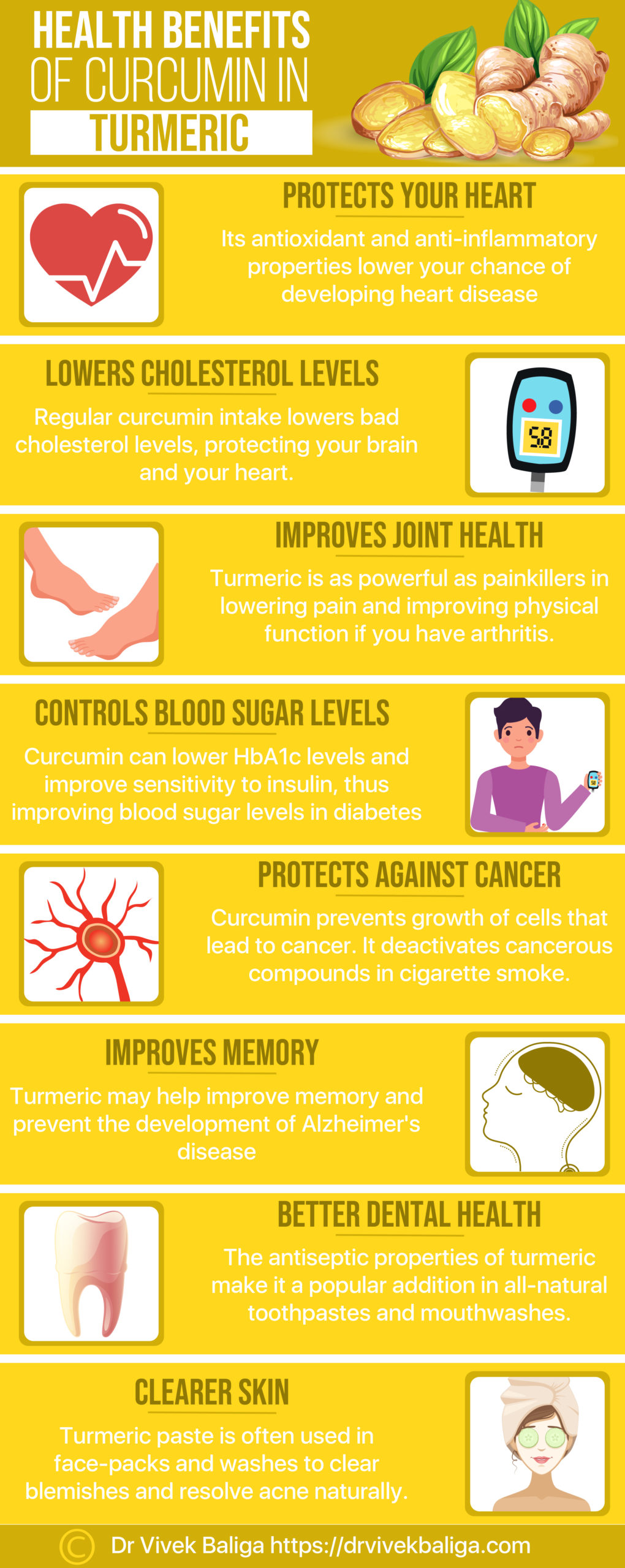
Share this Image On Your Site
Side Effects
As such, consumed in recommended quantities, turmeric (and hence curcumin) has no reported side effects and is perfectly safe, even in higher doses.
However, in men taking turmeric in high quantities, there can be a reduction in sperm motility. If you are trying to have a family, then men need to stop taking any turmeric supplements.
It is not recommended as a contraceptive on its own, even though it has that effect. It is better to use other proven methods instead.
Does Cooking Destroy Curcumin?
Most Indian dishes have turmeric added, either for taste or for color. But does the cooking process destroy the benefits of curcumin?
One study found that frying turmeric can weaken curcumin and its antioxidant effect. Instead, boiling or dry roasting may be better. However, the full benefit cannot be obtained following any cooking process.
How To Include Curcumin In Your Diet
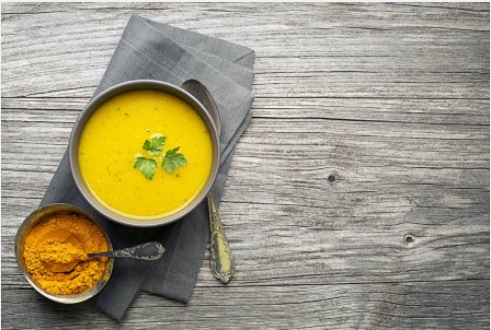
You could still carry out your early morning routine of turmeric in water. But that is not enough. Also note that you need to add pepper to the water as well, as piperine in pepper helps enhance absorption of curcumin by nearly 2000%!
Turmeric added to cooking can give you an additional boost. You could even try turmeric, ginger and carrot soup. Its quite delightful. Some people have tried turmeric infused tea.
Cost Of Curcumin Supplements
Consuming turmeric alone to get your daily dose of curcumin requires you to have between 6 to 10 teaspoons of turmeric every day. This is not really possible for all.
Curcumin extract capsules are available in the market, but are expensive. The best quality ones cost around Rs 24 a gel capsule. You will need at least 3 to 4 per day of these.
You may want to take it only if you can afford it.
Closing Remarks
There is no doubt that there are numerous health benefits of curcumin in turmeric. The best part is that there are no side effects reported.
Getting the right dose of curcumin in your diet every day can be hard though. You may want to talk to your doctor about getting a supplement instead.

Dr Vivek Baliga is a medical practitioner and the director of a diagnostic center – Baliga Diagnostics – in Bangalore. He specializes in diabetes and heart disease, and is a visiting consultant in Internal Medicine at corporate hospitals. He is married and has one son.

Hello doctor,
Thanks for informative article.
I read online that people talking blood thinning medications should not consume turmeric. Is that true?
Thanks
Good point and thank you for your comment! It is thinners like warfarin that it interacts with. It may affect clopidogrel. Best to exercise caution.
Thank you!
We’ll written Dr. Vivek. Very informative
Thank you sir!
Nice article. Very informative
Hello Dr. Is it ok to take turmeric along with ecospirin?
We usually advise caution for those taking supplements. However, in our daily diet, it usually causes no major problem
Doctor,
I have been taking turmeric from past 6 months with hot water. But I use to take turmeric only half a spoon or lesser. But your article mentions about 5 spoons a day!!! for real benefits of turmeric. Need to know whether this half a spoon daily with water is of any use or not……….
Every little helps! However, to get true benefit, you need a lot more than a half spoon.
Thanks for giving a well researched view on the benefits of turmeric. We have heard about this from many sources and hence have added turmeric to our daily food items. Your article validates the many views and motivates us to continue to include the super turmeric to many other items of food.
Thank you!